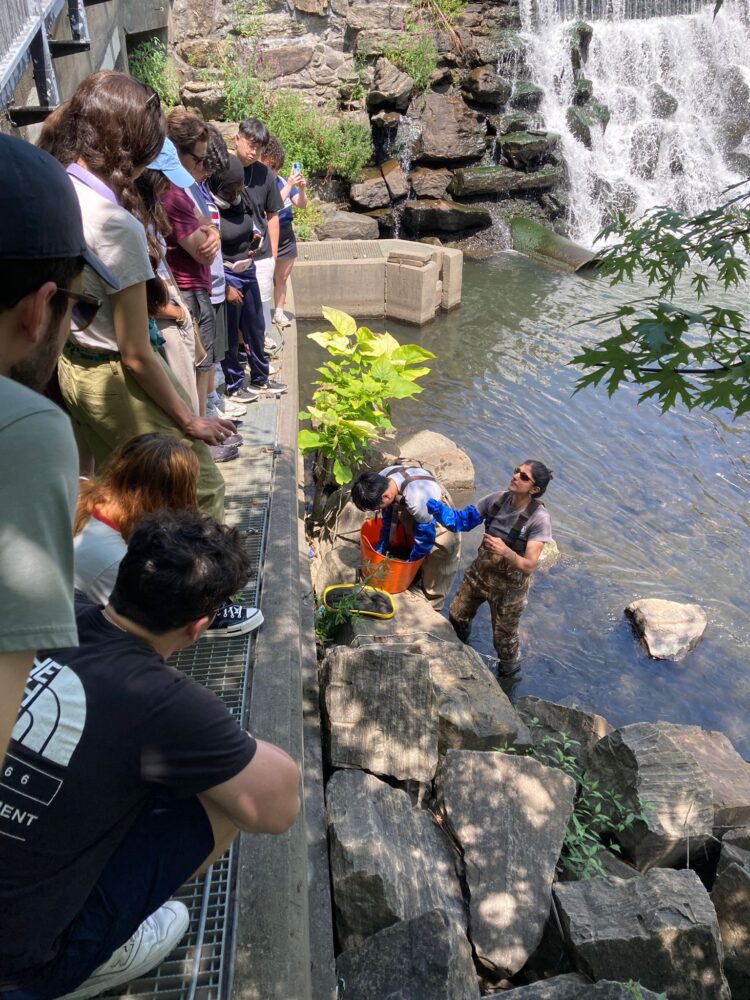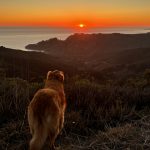This past summer, students from Columbia’s Master of Public Administration in Environmental Science and Policy (MPA-ESP) program embarked on an Urban Ecology field trip led by Matthew Palmer, senior lecturer in the department of Ecology, Evolution, and Environmental Biology at Columbia. The cohort visited Randall’s Island, River Park, and Bronx Park East, exploring the convergence of natural ecosystems and urban environments. Through hands-on learning, students gained a deeper appreciation for the importance of urban ecology in building sustainable and resilient communities.
The journey began at Randall’s Island, where students learned about the successful public-private partnership driving the park’s management. They explored the Little Hell Gate Salt Marsh, a vital nursery for fish and a restored natural habitat, and discussed the island’s hydrological challenges and restoration efforts.
Next, the cohort visited River Park in the Bronx, where they delved into wetland restoration efforts and the impact of the Billion Oyster Project in improving water quality. They also learned about green infrastructure solutions to manage stormwater and reduce pollution in urban areas.
The final stop was Bronx Park East, where students learned about stream-forest health connections and the challenges of managing invasive species like knotweed. They discovered the importance of native tree cover in suppressing knotweed growth and discussed the implications of invasive species on biodiversity and urban ecosystems.
Overall, the field trip provided invaluable real-world experiences for MPA-ESP students, highlighting the intricate balance required to preserve and enhance natural environments in a bustling urban landscape. From salt marsh restoration to green infrastructure implementation, the lessons learned from sites like Randall’s Island and Bronx Park East underscored the urgency of addressing environmental challenges in urban areas.






